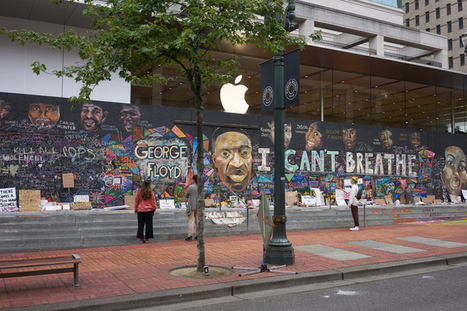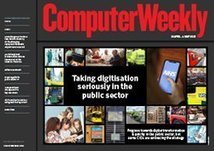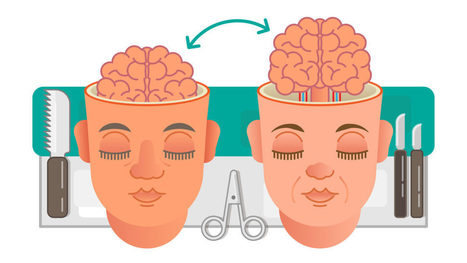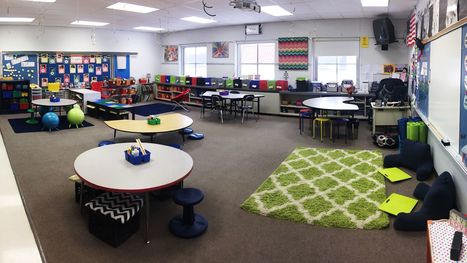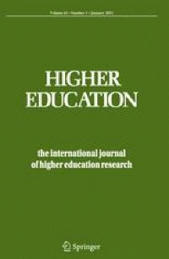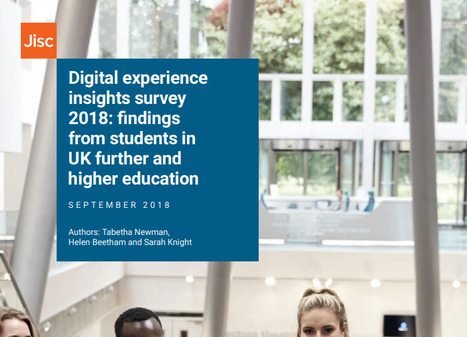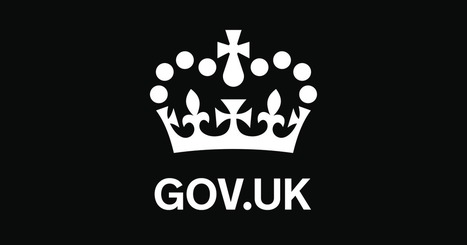A recent HEPI blog written by Professor Doug Stokes argues that the decolonisation movement in higher education is ‘illiberal and authoritarian’, describing recent comments from the Minister of State for Universities that decolonisation is ‘censoring history’ as ‘a defence of key academic values’. While we certainly respect the author’s right to freely express their opinions, we believe the blog perpetuates several fundamental misunderstandings about curriculum decolonisation that should be addressed.
Get Started for FREE
Sign up with Facebook Sign up with X
I don't have a Facebook or a X account

 Your new post is loading... Your new post is loading...
 Your new post is loading... Your new post is loading...
Current selected tag: 'UK'. Clear
This blog was kindly contributed by Kirstie-Anne Woodman, a recent International Relations graduate from the University of Birmingham. Kirstie-Anne is currently interning at a diversity and inclusion consultancy agency, Worth of Mouth Services.You can find Kirstie-Anne on LinkedIn.
It took me a long time to find a dissertation topic which invigorated me and I felt a true passion for. Then, by chance, I came across Nicola Rollock’s ‘Staying Power’ paper, a report on the career experiences of Black female professors in the UK. While reading, it hit me, I had never had, or even seen a Black professor at my university – let alone a Black female professor. This led me to think of all of my university experiences which had differed to those of my peers due to my Blackness. I read reports regarding the Black attainment gap, the Black drop-out rate and the need to decolonise curriculums. For the first time, feelings of otherness that I had felt throughout my entire university journey, were explained and quantified in academic terms. And so I wrote ‘Black Academic, White Space: The Insidious Legacy of Institutional Racism at Top-tier UK Universities’.
As there are growing calls from below, alongside expanding formal initiatives, to decolonise universities, Dr Rima Saini outlines what decolonisation means in the higher education context. She highlights that it is a radical project of institutional transformation that lies in exposing and upturning the colonial underpinnings of our universities. Given the immensity of this task, Saini explores the risks of institutional capture – that structural change will be absorbed into management strategies- and offers recommendations for meaningful change.
This blog was kindly contributed by Kalwant Bhopal, who is a Professor of Education and Social Justice, the Director of the Centre for Research in Race & Education (CRRE) and BAME Academic Lead, in the School of Education at the University of Birmingham.Her recent book, ‘White Privilege: the myth of a post-racial society’ was published by Policy Press.
On Thursday, HEPI will be publishing its first major paper on decolonising curricula.
The protests against the murder of George Floyd by police in the USA have been widely noted as marking a significant ‘moment’ in the history of race relations, not just in the United States but across the globe. The problem of such ‘moments’ is that we have seen so many of them before. #BlackLivesMatter itself was a response to a previous ‘moment’, the killing of Trayvon Martin in Florida. In the UK, the racism of police officers to cover-up the murder of Stephen Lawrence was another such ‘moment’.
The article entitled Coronavirus is widening the corporate digital divide points out that the “need to virtualise work due to Covid-19 is driving digital transformation and deepening differences across people and across firms at an incredible rate”. .
The expansion of the Internet has opened up opportunities for knowledge acquisition. But has the Internet decreased motivation with some students and affected mental health in some cases? A new study suggests so.
At the end of May, Ofcom published a new report Online Nation, with a great deal of information about the information and media habits of the UK population. It brings together Ofcom's rich research. Home page at https://www.ofcom.org.uk/research-and-data/internet-and-on-demand-research/online-nation/narrative
The university sector in the United Kingdom is hugely diverse and that diversity is increasing rapidly. It is not just that devolution to Wales, Scotland and Northern Ireland has encouraged regional diversity but that institutional missions, modes of operation and methods of governance are so different.
Ofcom (the UK media and communications watchdog) have published (at end of January 2019) the Children and parents: media use and attitudes report 2018. As usual, it is based on robust research: 1,430 in-home interviews with parents of 5-15s and children aged 8-15 were conducted, along with 630 interviews with parents of children aged 3-4: undertaken in April-June 2018. It includes parents views about their children's use of media and devices.
How can digital technology help you achieve a truly transformative student experience? How do you develop the strategic vision, practices and infrastructure to make that happen?
Today, Research England publishes three documents to help institutions prepare for the consultation later this month on the Knowledge Exchange Framework (KEF). One of those documents summarises the 106 responses to the December 2017 call for evidence, about what data is relevant to knowledge exchange and how it should be used appropriately. In particular, it looks at how institutions can be compared in a “fair and meaningful” way. The majority of responses are read as having a “cautiously positive tone, essentially this could be useful if done well”.
There are plenty of studies that isolate the effects of light, acoustics, or air quality on learning. But the research on flexible classrooms is frustratingly scarce.
The university has developing digital capabilities as one of its core goals for the next five years. For instance, it has student digital champions who help others to develop the digital capabilities they might be expected to use in their course, such as e-portfolios, or WordPress as a website-creation tool. |
COVID-19 has caused the closure of university campuses around the world and migration of all learning, teaching, and assessment into online domains. The impacts of this on the academic community as frontline providers of higher education are profound. In this article, we report the findings from a survey of n = 1148 academics working in universities in the United Kingdom (UK) and representing all the major disciplines and career hierarchy. Respondents report an abundance of what we call ‘afflictions’ exacted upon their role as educators and in far fewer yet no less visible ways ‘affordances’ derived from their rapid transition to online provision and early ‘entry-level’ use of digital pedagogies. Overall, they suggest that online migration is engendering significant dysfunctionality and disturbance to their pedagogical roles and their personal lives. They also signpost online migration as a major challenge for student recruitment, market sustainability, an academic labour-market, and local economies.
Elizabeth E Charles's insight:
Insightful findings re the digital pivot "The impacts of this on the academic community as frontline providers of higher education are profound."
Inspiration for an uncertain futureLearning and teaching reimagined, with the support of its advisory board, and more than 1,000 HE participants, provides university leaders with inspiration on what the future might hold, guidance on how to get there and practical tools to develop your plans. Full reportThe flagship learning and teaching reimagined report is the result of a five-month higher education initiative to understand the response to COVID-19 and explore the future of digital learning and teaching. It involved high levels of engagement with sector leaders, staff and students through webinars, roundtables, consultations, focus groups, surveys, interviews, and case studies. Read the report, learning and teaching reimagined: a new dawn for higher education.
The Higher Education Policy Institute (HEPI) has published a new report with original testimony and practical guidance for UK universities on decolonising higher education. The report establishes that the decolonisation of UK universities is vital for the improvement of course curricula, pedagogical practice, staff wellbeing and the student experience. Miseducation: decolonising curricula, culture and pedagogy in UK universities by Mia Liyanage is based on over 20 hours of interviews with leading figures in academia, student activism and higher education policy. The report’s recommendations include:
Elizabeth E Charles's insight:
Definitely worth a read regarding the call for the decolonisation of universities.
Digital and numeracy skills are amongst those that are most sought after by employers, and can help you progress in work and boost your job prospects. Digital skills can be anything from using social media and staying safe online to coding, programming or digital marketing.
This guest blog has been kindly contributed by Professor Neil Morris, Chair in Educational Technology, School of Education, University of Leeds. He can be found at @NeilMorrisLeeds
The Unbundled University research project, funded by the UK’s Economic and Social Research Council (ESRC grant number ES/P002102/1) and the National Research Foundation in South Africa (NRF grant number 105395), explored a range of issues in relation to the expansion of online education in universities in the UK and South Africa, including partnerships with private companies and the disaggregation of learning and teaching materials for delivery online (‘unbundling’).
Data were collected from interviews with senior leaders, academics, students and private companies in both countries. The data are being written up for publication in academic journals, but given the rapid shift to focus on online education as a result of the Covid-19 pandemic, it is evident that some of the headlines from the research need to be put in the public domain rapidly.
Elizabeth E Charles's insight:
A timely report with the mass move to online teaching/learning.
Library hub discover, library hub compare, and library hub cataloguing will make it easier for UK higher education libraries and researchers to access, discover and manage academic collections.
Having a student body that is representative of wider society has been high on many universities’ agendas for quite some time. Yet recent UCAS data shows the gap between disadvantaged and non-disadvantaged students, particularly those studying at “top” Russell Group universities, has recently widened.
Key messages: Prepare students for digital learning
Authors: Tabetha Newman, Helen Beetham and Sarah Knight
Disinformation and 'fake news': Final Report ContentsConclusions and recommendations Regulation and the role, definition and legal liability of tech companies
1.Social media companies cannot hide behind the claim of being merely a ‘platform’ and maintain that they have no responsibility themselves in regulating the content of their sites. We repeat the recommendation from our Interim Report that a new category of tech company is formulated, which tightens tech companies’ liabilities, and which is not necessarily either a ‘platform’ or a ‘publisher’. This approach would see the tech companies assume legal liability for content identified as harmful after it has been posted by users. We ask the Government to consider this new category of tech company in its forthcoming White Paper. (Paragraph 14)
King's has set out a compelling vision to ‘make the world a better place’ in its strategy for 2029. The strategic drivers that will enable its delivery mean that Library Services must position itself as a provider of access to world-class resources and learning spaces in order to support research and teaching.
The ninth UCISA Survey of Technology Enhanced Learning (TEL) for higher education Report has been published. The Report offers a longitudinal perspective of TEL developments across the UK higher education sector, focusing on the current provision within universities and other higher education providers and the emerging and planned patterns of learning technology usage. This year’s Report draws on data going back to 2001 in its longitudinal analysis of TEL trends. In this blog post, we will explore some of the key findings from this year’s Survey, updating the picture that was reported on in 2016 (see corresponding blog post).
In April 2018 at the LILAC Conference in Liverpool, the CILIP Information Literacy Group launched the revised definition of information literacy (IL). It defines IL as: |







